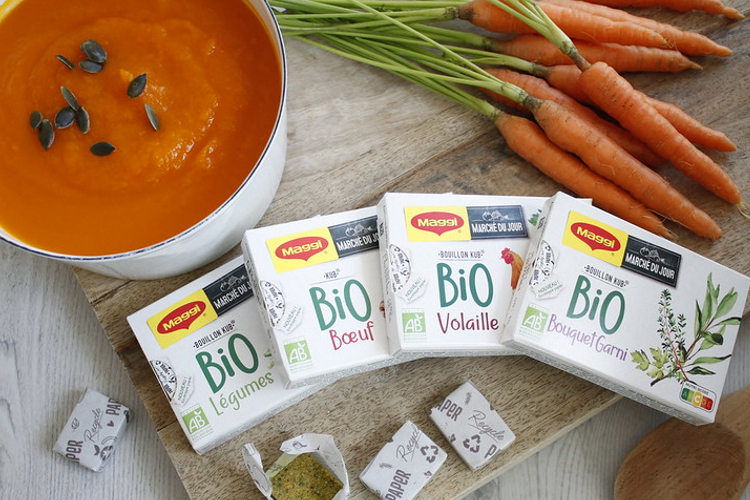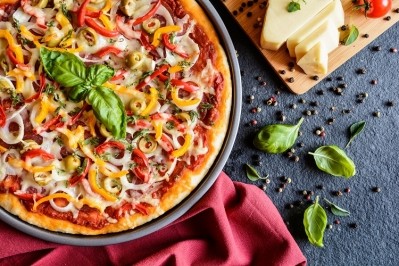Nestlé highlights ‘key challenge’ of food insecurity as it hikes prices 6.5%

Swiss food giant Nestlé grew organic sales by 8.1% in the first six months of the year. This was largely driven by increased prices, which were raised by 6.5% to partially offset what the group described as an ‘unprecedented’ increase in expenses.
The higher cost of goods sold was driven by increased commodity, labour and energy expenses that ‘hit us like a freight train’, the KitKat-to-Maggi maker’s CEO Mark Schneider revealed.
Schneider described a year of ‘extraordinary supply chain challenges’ and input cost inflation. “The situation was difficult before, but the war in Ukraine brought this to a whole new and unforeseen level, in particular for the food industry,” he stressed.
Nestlé’s chief executive was quick to stress that the group’s underlying trading operating profit margin ‘clearly shows that the food industry is not the cause of soaring food prices’.
Nestlé’s underlying trading operating profit margin stood at 16.9% for the six month period, down by 50 basis points. The company lowered its full year margin guidance to 17% from a previous range of 17-17.5%.
Spiking food prices, with more to come
Schneider blamed rising food prices on ‘geopolitical and macroeconomic circumstances that are outside of our control’. For its part, the world’s largest food maker did ‘everything to address these challenges in a responsible manner’, working from ‘all angles to mitigate the unavoidable impact on our underlying trading operating profit margin’, he claimed.
“In addition to pricing, we are making full use of other levers, such as strategic revenue management, efficiencies and disciplined cost management, product mix, as well as portfolio management. For example, in terms of efficiencies, we expect to generate significant savings in 2022 through SKU optimization, recipe and packaging harmonization as well as the development of new technologies,” added finance chief François-Xavier Roger.
Schneider suggested the company has seen a ‘momentary stabilization’ in margin pressure. Nevertheless, Nestlé management revealed, further price rises are in the pipeline this year.
“There's still pricing going on. You see our gross margin is still impacted. It's not in your best interest to pinpoint now exactly which category and which geography is going to see price increases, but clearly some repairing needs to be done… The gross margin is still quite a bit down from what it was at the half year point last year. So that'll continue to happen in the second half,” Schneider predicted.
Nestlé acknowledges concern over food insecurity
While pricing action might have felt steep to shoppers at the checkout, Nestlé stressed it made a ‘point of acting responsibly in our price increases’.
“I believe we handled the situation well under the circumstances and found a reasonable balance between maintaining growth and protecting the bottom line,” Schneider claimed.
“This brings me to a key challenge at this time of increasing food insecurity and that is improving access to affordable high-quality nutrition. The combination of the pandemic and the war in Ukraine has wiped out much of the progress over the past decade in this important area. This is a time when help is needed.”
Food insecurity is increasing globally as purchasing power has been eroded. According to NGO Action Against Hunger 828 million people don't have enough food to eat. That's almost 10% of the world's population.
With Nestlé’s ‘long-standing presence in developing countries’, Schneider said the company sees ‘many opportunities to do good and to do well at the same time’ by offering ‘affordable’ nutrition to lower-income consumers.
In this context, the company outlined ‘focus areas’ where it believes it can leverage the principle that ‘good business is good business’. It is working on micronutrient fortification based on local needs. Efforts have included the recent launch of BUNYAD IRON+ in Pakistan, an ’affordable’ dairy drink with added iron; and the fortification of Maggi bullion in Central and West Africa. The company is optimising its value chain and leverage local ingredients to reduce costs and secure supply. It is expanding its nutrition and education programs and partnerships, including the development of a custom-made product for Foodbank in Australia – Maggi Hearty One Pot Recipe Mix. Finally, Nestlé said, it is working to increase the ‘availability and accessibility’ of ‘affordable nutrition products’.
“We acted responsibly when it comes to the pricing of our products. But we go beyond responsible pricing alone. We lead the way when it comes to micronutrient fortification and in the important task of establishing and scaling up local and more resilient food supply chains, in particular in Sub-Saharan Africa,” Schneider claimed.
The company grew organic sales in emerging markets by 10% on the back of prices that it raised by 6.6%. In developed markets, Nestlé bumped prices by 6.3%, while real internal growth - a measure that strips out pricing - increased 0.5%.
On a group-wide basis net profit totalled CHF5.2bn in for the six month period. The represented a year-on-year decline of 11.7%, which was principally due to one-off items, including higher impairments and taxes. Underlying earnings per share, however, increased by 8.1% on a constant currency basis.










